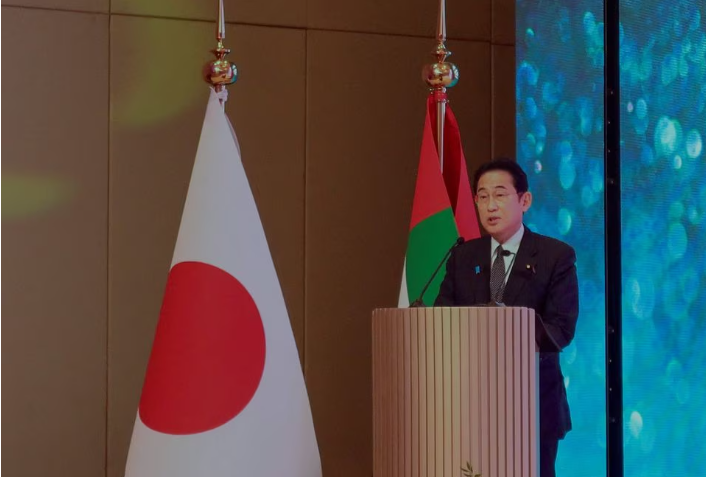
Kishida, who has been urged by Japan's gas lobby to secure new liquefied natural gas (LNG) supplies from Qatar, held talks with the emir, Sheikh Tamim bin Hamad al-Thani. They agreed to upgrade their countries' relationship to strategic from comprehensive, "especially in energy, economy, defence, security and academic exchange," the emir's office said.
The two countries did not announce new LNG deals on Tuesday, but Kishida told Sheikh Tamim that "LNG serves a crucial role in Asia for a realistic energy transition," according to a Japanese foreign ministry statement.
Kishida emphasized that Japan had been the country to gain consensus from the G7 on the importance of natural gas and LNG investments, the statement said, "based on the understanding that mid- to long-term investment in such energy is indispensable for the G7."
Competition for LNG has ramped up since the Russian invasion of Ukraine in February 2022, with Europe in particular needing large amounts to help replace gas piped from Russia.
Qatar's minister of state for energy and the QatarEnergy CEO attended the meeting between the two leaders alongside other officials, the Qatar statement said.
Japan, which remains highly dependent on oil and gas imports, did not renew several long term LNG contracts with Qatar when they lapsed in 2021 and 2022, significantly reducing gas imports from one of the world's top LNG exporters.
Meanwhile, several other Asian buyers have signed long-term LNG supply contracts with Qatar, including a pair of record-length 27-year deals with Chinese importers for gas from Doha's North Field expansion, which will increase the Gulf Arab state's gas production by more than 60%.
"Coordination with Qatar is extremely important for stabilizing global liquefied natural gas markets," the Japanese foreign ministry said in a document outlining the objectives of the Qatar talks.
QatarEnergy has said it expects to sign supply contracts for nearly all of the new North Field volumes in 2023.
Kishida's Qatar visit follows a stop in Saudi Arabia on Sunday in which Riyadh said it remained committed to securing oil supplies for Japan and would continue cooperating with Tokyo on clean hydrogen, ammonia and recycled carbon fuels.
In Abu Dhabi on Monday, Kishida and UAE leaders agreed to a new scheme to accelerate energy security, as well as a framework for the UAE to invest Japanese chip and battery technology.